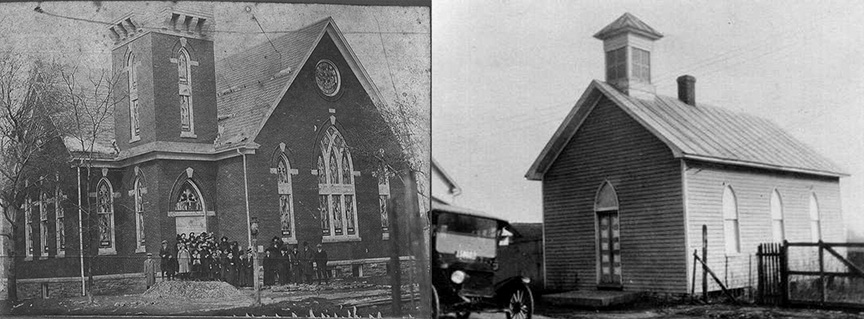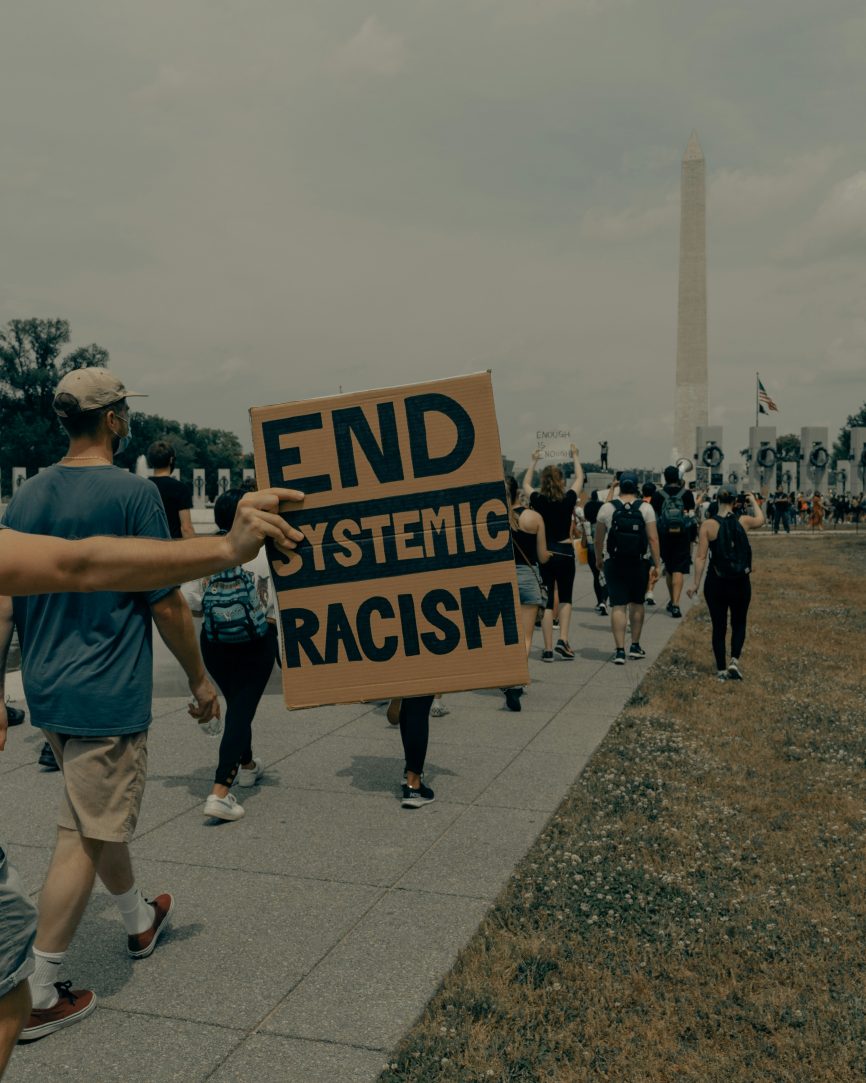by: Rev. Anna Golladay
My childhood was spent in the northern Shenandoah Valley of Virginia. This gorgeous mountain and valley vista was the place where I learned to love God and love creation. I was baptized into the United Methodist Church as an infant and spent the first 35 years of my life in the arms of Stephens City United Methodist Church. This church has a rich Wesleyan history, having been established around 1778 by circuit riders who dotted the Valley at the direction of Church of England antagonist John Wesley.
As I grew, I would come to realize the importance of our sister congregation, Orrick Chapel Methodist Episcopal Church. From the late 1700s to the early 1800s, black Methodists in Stephens City worshiped with whites in the same building. By 1858 African American Methodists in my hometown had a separate house of worship, just one block away. Many of my friends attended Orrick Chapel. One of the women who babysat for my siblings and I attend Orrick. Our children’s ministry and youth ministry often overlapped with activities.

Right: Orrick Chapel Methodist Episcopal Church 1920s
Due to finances, shrinking membership, and other factors, Orrick Chapel merged with my home church in 1991, the year I graduated from high school. I was so excited that we would be worshipping together and that I would see these friends and mentors weekly. I remember being puzzled when none of them showed up at church the Sunday after the official “merge.” As weeks went by, and they were not there, I raised the strength to ask why. I’ll never forget the answer I received: because they spent too many years being under the control of the white church and they didn’t plan on moving backward.
It took me more than 20 years to understand what that meant. What I initially took as selfishness and stubbornness was far from it. It wouldn’t be until began to actively look at my own racism and supremacist tendencies that I could recall that time with sadness and embarrassment.
The Christian Church has a long history of racism. As Robert P. Jones, author of White Too Long: The Legacy of White Supremacy in American Christianity reminds us,
“Underneath the glossy, self-congratulatory histories that white Christian churches have written about themselves—which typically depict white Christians as exemplars of democratic principles and pillars of the community—is a thinly veiled, deeply troubling past. White Christian churches have not just been complacent or complicit in failing to address racism; rather, as the dominant cultural power in the U.S., they have been responsible for constructing and sustaining a project to protect white supremacy. This project has framed the entire American story.”
Over the last decade, denominations, congregations, and leaders have begun to wrestle with this unsettling history. We have hosted book clubs, become less fearful of naming racism from the pulpit, and engage in reparative work with our communities. But these actions often come off as performative – never having a meaningful impact on us confronting our own racist and white supremacist proclivities. Individually, institutionally, and denominationally, we are, and remain, complicit in the original sin of America.
Convergence is no different. As an organization, we are continually confronted with the work we must do internally and individually. No one becomes anti-racist from reading their way out of it. It is a constant and lifetime pursuit – one riddled with the confrontation of our truths, often resulting in that same confrontation over and over. Our ultimate hope results in a shrinking of our ego and an expansion of our desire to be changed by the work.
Because the Church (us) is “complacent or complicit in failing to address racism;” and is “the dominant cultural power in the U.S.,” it (we) is/are an essential place to start. Convergence is launching Anti-Racism Training for Pastors and Leaders on April 1, 2024. Participants will learn from denominational experts and the team at Convergence about the need for an anti-racist approach to leadership in congregational and community settings.
Modules contain specific learning objectives, a thorough review of the ways that racism shows up, best practices, and video interactions.
- History of Racism in the Church
- Important Terms and Definitions
- The Interaction Between Racism and White Supremacy
- The Characteristics of White Supremacy
- Evaluating Self and Community
- The Challenges That Come With Awareness
- Leadership Tools for Successful Conversations and Change
We encourage you to pre-register for this course today. Ask other leaders in your community to take it with you. The work is ours and ours alone.
For a limited time, use the code ANTIRACISM20 for 20% off


